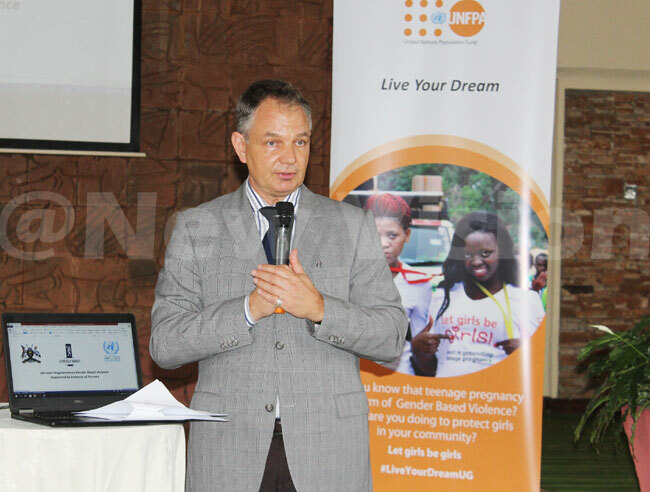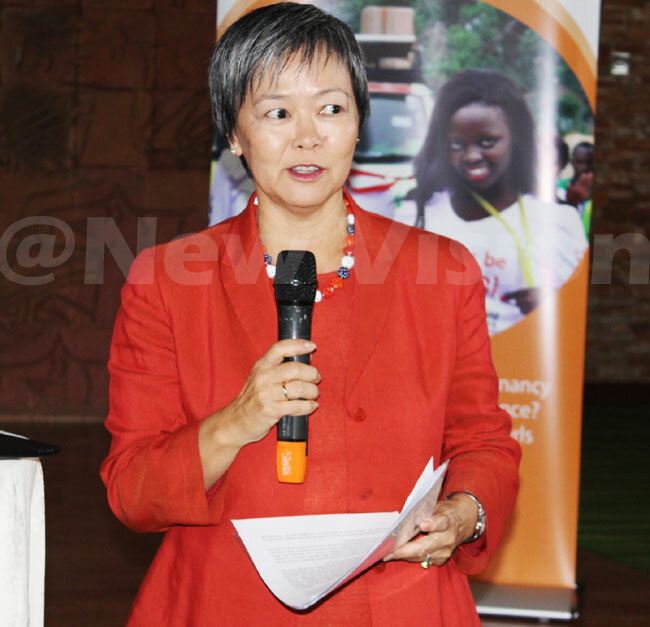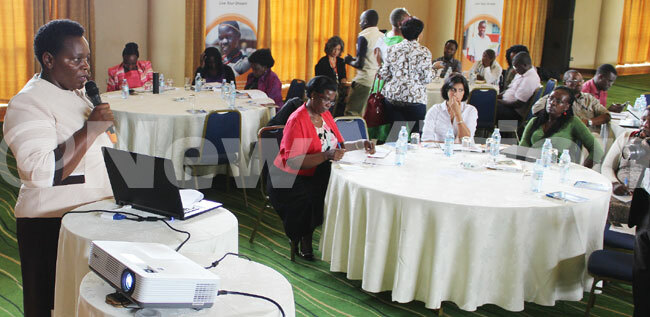Gender-based violence hindering development - minister
The National Population and Housing Census 2014 results show that there are 16,935,456 million males in Uganda, compared to 17,921,357 million females.
GENDER BASED VIOLENCE
The state minister for gender and culture, Peace Mutuzo, has said Gender Based Violence is hindering development in Uganda, as it hinders women from reaching their full potential.
Mutuzo said women, who are the majority in Uganda, have the capacity to turn around the country if their rights are respected and if they get equal treatment like men in terms of access to resources like land and money.
The National Population and Housing Census 2014 results show that there are 16,935,456 million males in Uganda, compared to 17,921,357 million females.
"Imagine if these women had equal rights like the men and had access to resources like men. We would be seeing a lot of development in this country because women are hardworking," Mutuzo said.
She was speaking during a workshop on gender-based violence organised by the United Nations Joint Programme to end Gander Based Violence at the Golf Course Hotel in Kampala, on Friday.
Mutuzo, said that government is committed towards ending GBV, which is one of the serious public and socio-economic concerns that is hindering Uganda's development.
She condemned the ongoing killings in Wakiso district which have left over 20 women.

PIC: UNFPA country representative Alain Sibenaler speaking at the event

PIC: Susan Eckey, the Norwegian Ambassador to Uganda speaking at the event

The programme has been operating in Acholi, Lango, Teso and Karamoja, covering 11 districts with an aim of ending GBV.
UNFPA country representative Alain Sibenaler highlighted some of the tangible results achieved since the programme started in 2008, which include several laws on GBV that were enacted from 2010.
He mentioned the Domestic Violence Act and regulations and the Anti-FGM Act.
He also mentioned several policies and guidelines that have been adopted, like Standard Operating Procedures for the prevention and response to GBV, psychosocial guidelines, Multimedia strategy for GBV, and the Male Involvement strategy, among others.
"Today, more girls are going to school, more women have joined the labour force and more women have access to sexual and reproductive health services, including family planning," Sibenaler said.
Despite the progress, Sibenaler warned of complacency about the work that remains to have GBV eliminated.
"Gender based violence continues to take a devastating toll on women and girls. The future we want is a world where every woman and girl and can live free from discrimination and violence and enjoy her full human rights and human dignity," Sibenaler said.
According to Susan Eckey, the Norwegian Ambassador to Uganda, the programme has changed the lives of many women, girls and families, by creating new and more sound dynamics free of GBV, allowing them to become equal partners in their families and communities.
"The programme has had - and is still having - a real effect on the ground. Norway's action plan aims at eliminating violence against women and girls in all its forms, both in the private and public sphere, including trafficking, sexual and any other kind of abuse," Eckey said.